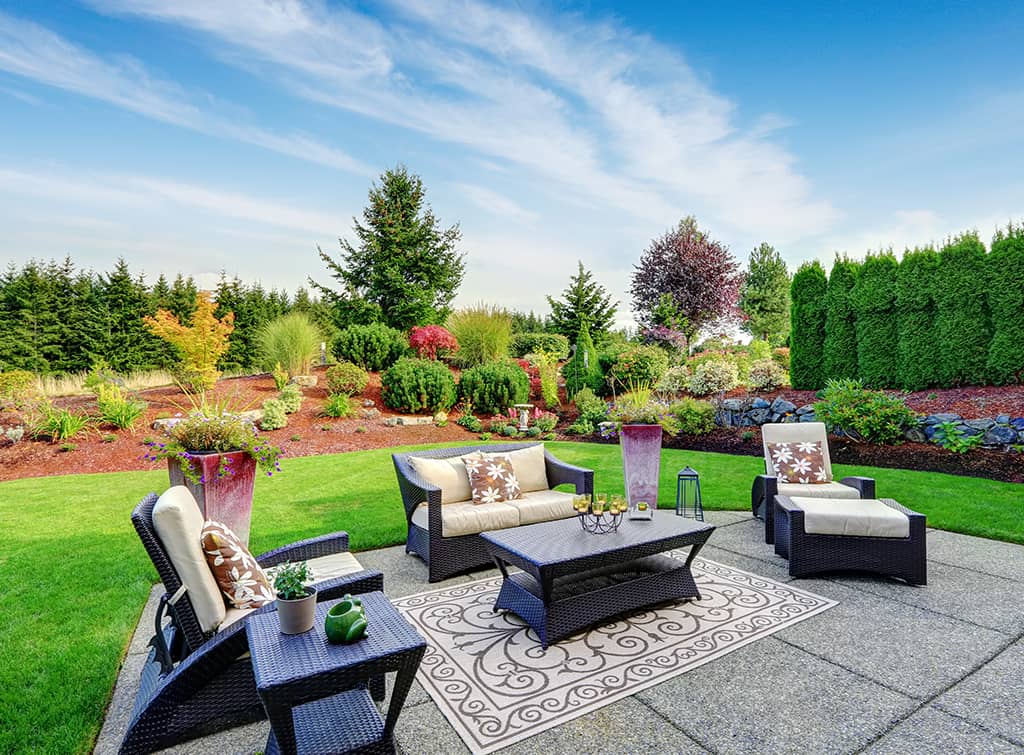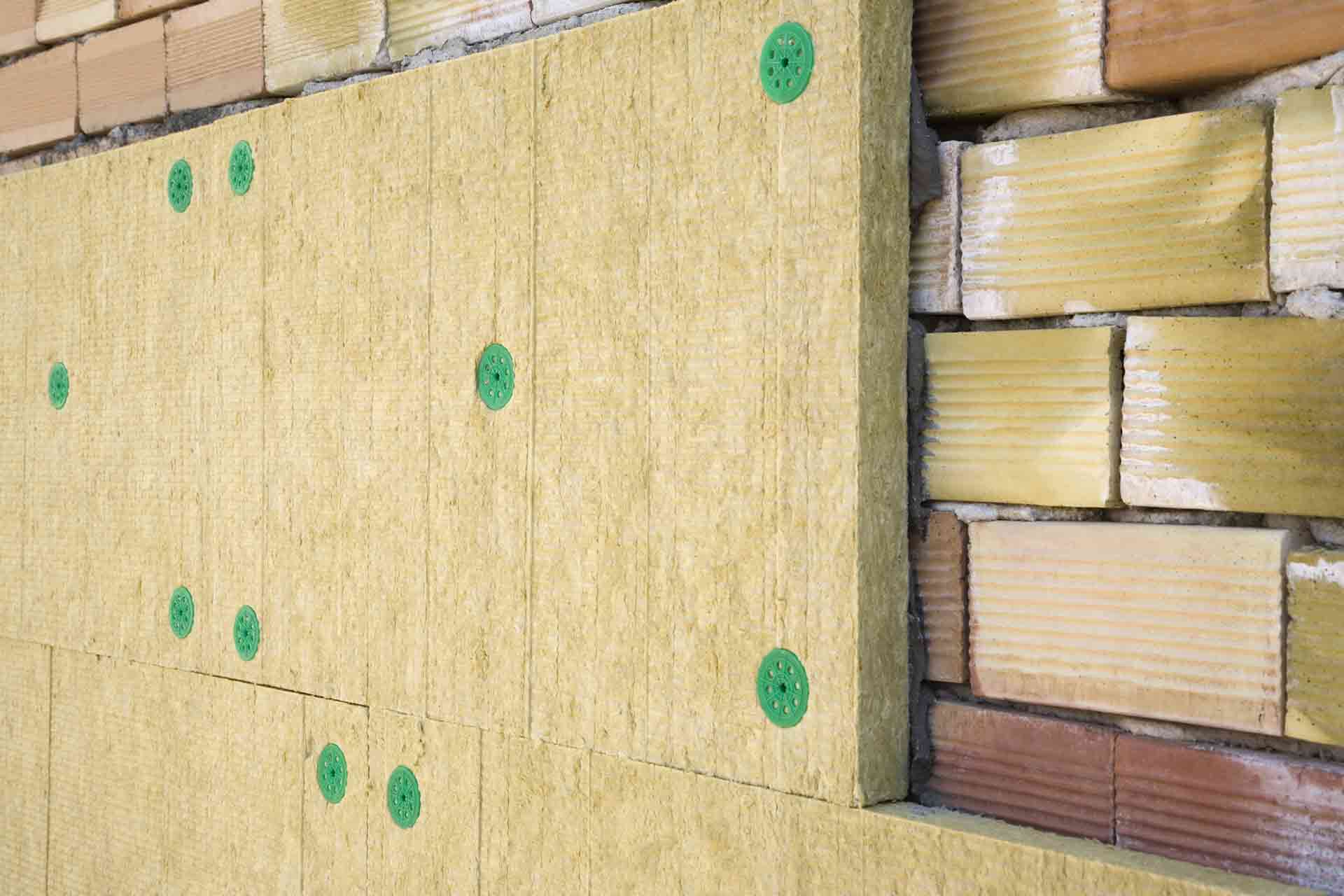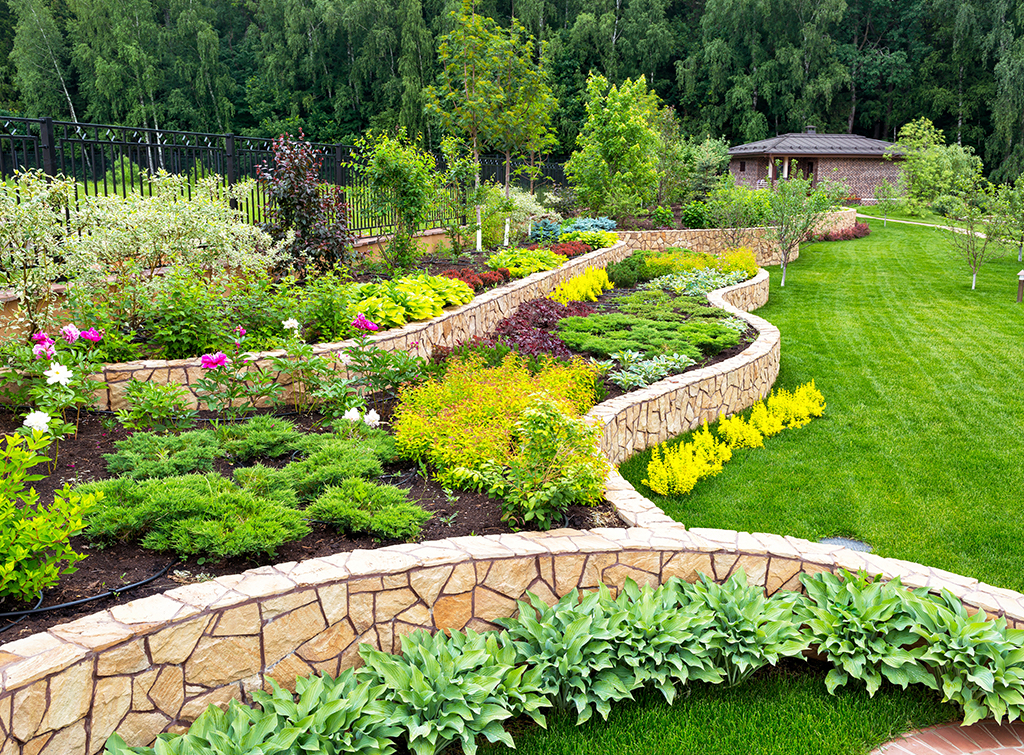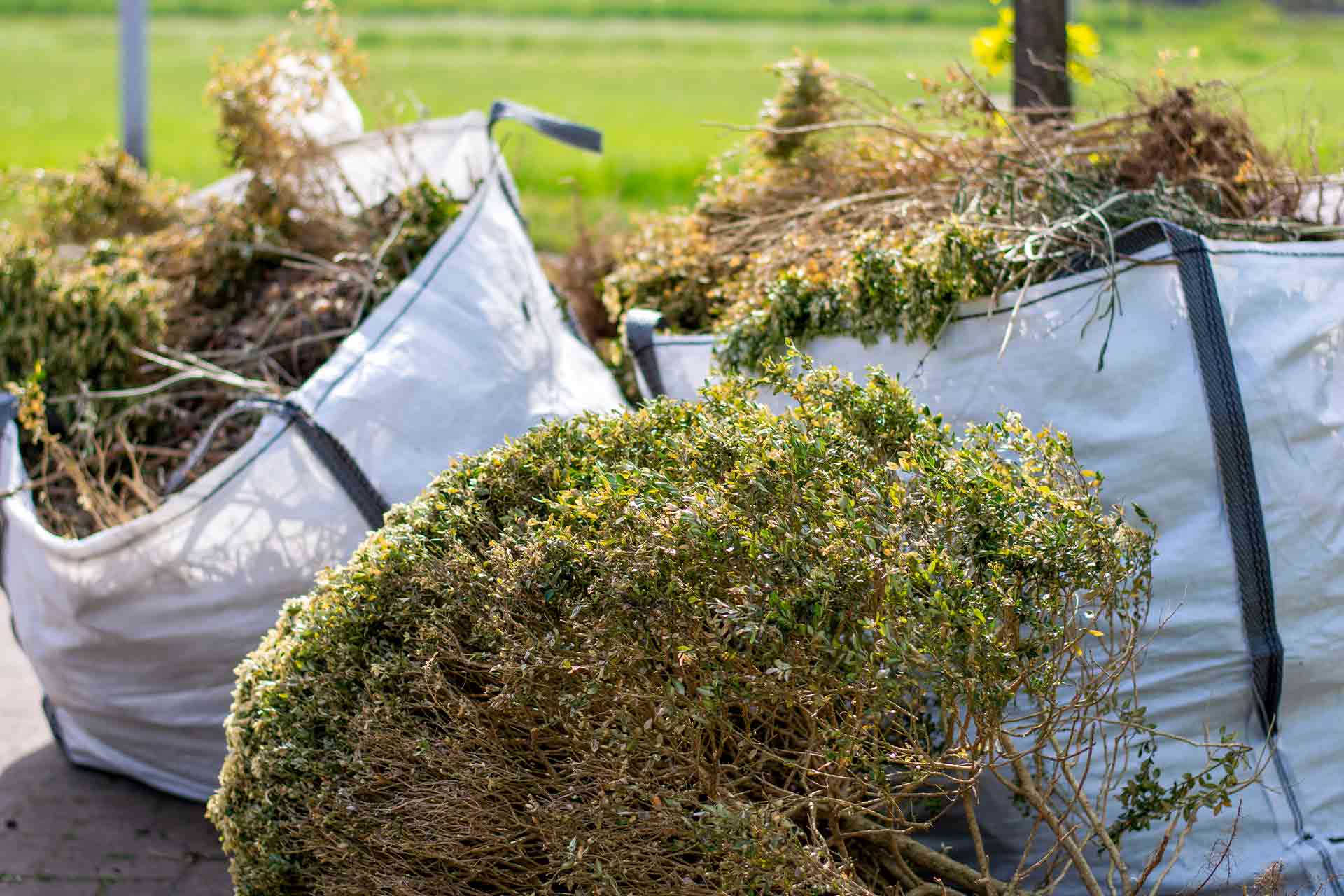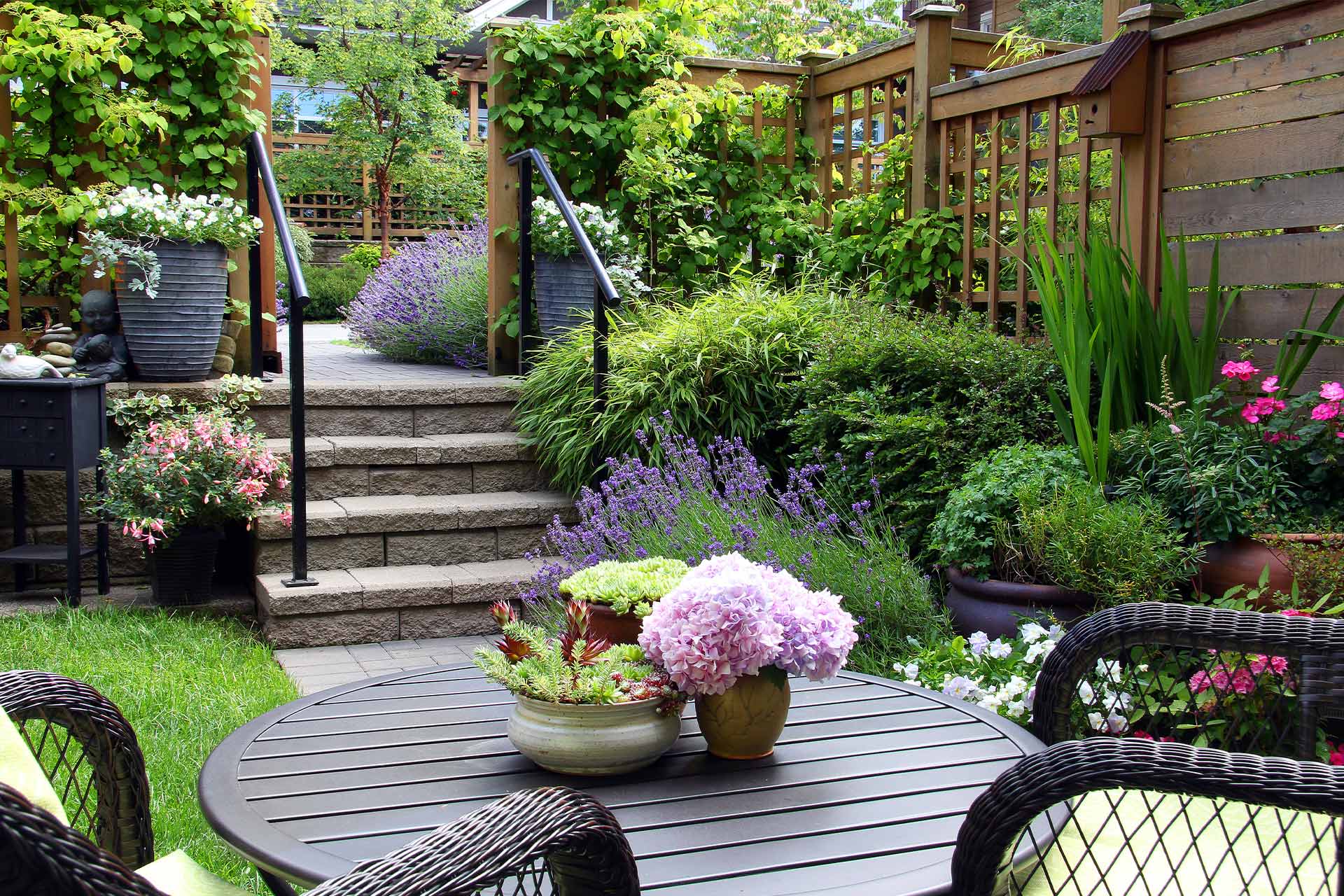Blog>Cost Guides>How much does mulching cost?
Last updated: 19 May 2024
How much does mulching cost?
If you're looking to improve the health of your soil, you may be thinking about adding mulch. So, we've put together this guide to look at the average mulching cost in the UK. Keep reading to find out more.
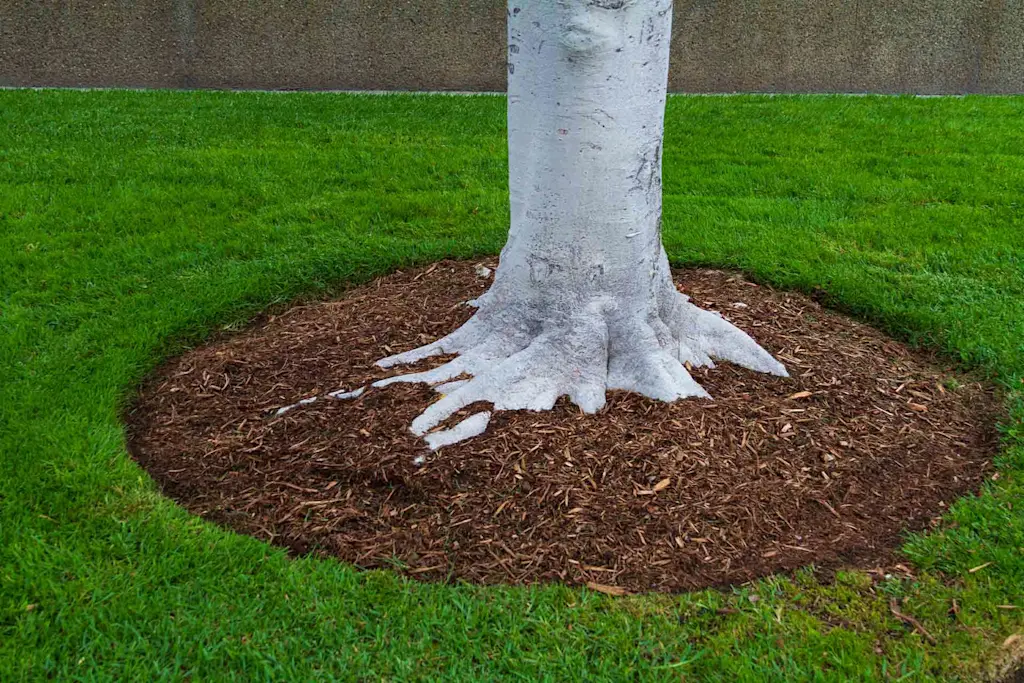
Fast Facts
The average mulching cost in the UK is around £110 - £200
On average, domestic mulching projects can cost anywhere from £71 to £355
For accurate mulching prices in your area speak to local mulching specialists near you
Mulching is used in the garden to improve soil quality, suppress weeds, and help the soil around plants retain water. But how much does mulching cost?
In this guide, we'll look at the different factors affecting mulching costs, to help you plan your gardening budget for the season.
Average mulching cost in the UK
| Project | Cost + VAT (Range low - high) | Average cost |
|---|---|---|
| Average mulching project includes delivery and installation | £110 - £200 | £155 |
| Vegetable garden with hardwood mulch | £52 - £90 | £71 |
| Play area with playground mulch | £130 - £225 | £178 |
| Landscaping area with wood chips | £260 - £450 | £355 |
| Last updated: May 2024 Our costs are ballpark averages - get a local tradesperson to quote now | ||
The average mulching cost in the UK is around £110 - £200, depending on the size of the area needing mulch.
Most homeowners end up spending £155 for mulch, including delivery and installation across a small area of soil.
Example costs for mulching projects
Vegetable garden with hardwood mulch – £52 - £90
Play area with playground mulch – £130 - £225
Landscaping area with wood chips – £260 - £450
What types of mulch are there?
Many types of materials can be used as mulch, and it can be spread in various locations.
One of the most popular types of mulch is made from biodegradable or organic materials. This is made from garden compost, wood chippings, leaf mould, well-rotted manure, or seaweed.
Biodegradable mulches add nutrients to the soil, to the benefit of your plants.
Alternatively, you can use non-biodegradable mulches made from gravel, slate, shingle, or another decorative aggregate to suppress weeds and add decoration to your flowerbeds.
There is also synthetic or man-made mulch, which offers plenty of benefits and lasts even longer than other types of mulch.
Organic mulching cost
There are many organic mulch types to choose from for your landscaping.
Some merely insulate and protect plants, but do not enhance the appearance of your garden.
Other types of biodegradable mulch provide a better appearance, along with benefits that may make them worth the additional cost.
On average, organic mulches cost between £80 - £140 per 1,000-litre (1m³) bag.
Synthetic mulching cost
Synthetic mulch is man-made. It doesn't break down over time, so it lasts longer than most organic mulches.
This means it saves you money long-term, even though synthetic mulches are usually more expensive than organic mulch.
Synthetic mulches are usually chosen for their appearance. For example, rubber mulch comes in a rainbow of colours.
Synthetic mulches like rubber mulch cost between £40 - £60 per m², or around £395for a 1,000-litre (1m³) bag.
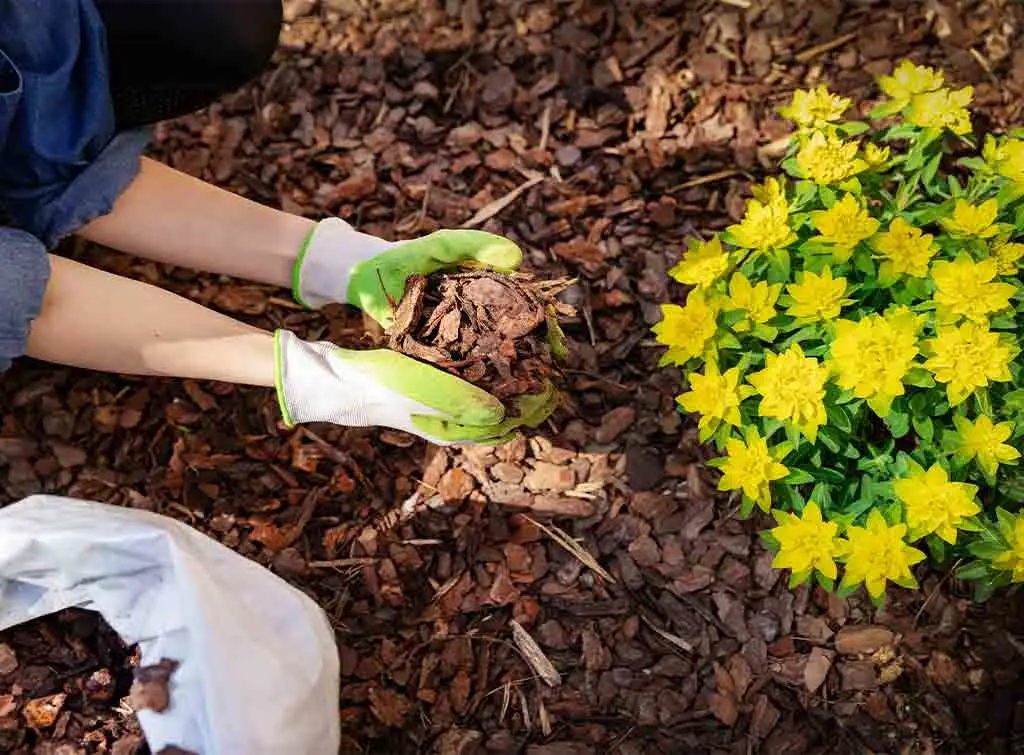
Checklist for laying mulch
Avoid the hassle of labour-intensive mulch application by hiring a professional to do the job
Never apply more than a 10cm layer of mulch to garden beds, as too much mulch can block sunlight and water from reaching the roots
Check for dyes before choosing a mulch for your garden because some chemicals in dyes react with certain woods and can produce toxins
Compost can be used as mulch for gardens with its nutrient-rich mix of decayed organic matter
Create an edge around garden beds to stop mulch from being removed by wind and rain
See the tradespeople we've checked and recommend for your job
FAQs
How much mulch do I need?
To work out how much mulch you need, have a chat with your landscaper or gardening expert. The amount you need will depend on how large the area to be covered is, plus how sloped or flat it is.
The mulch type also matters. Some mulches spread easily so you can use less, while others are denser. This means you'll need more to cover the same area.
Mulch is usually sold by volume in litres or cubic meters (m³), so it's relatively easy to calculate how much you need to fill an area. All you have to do is measure the length, width, and depth of the area (preferably in metres).
Then, multiply the three figures together to give you the volume in cubic metres or m³. You can use this to work out your overall mulching costs.
The recommended average depth for mulch is 0.03 metres (3cm).
What type of mulch is best?
It depends on your garden and your plants, but mulch made from bark is a great option. It's heavy, so it won't blow around, and it improves the composition of the soil as it decomposes.
This creates a lovely fertile soil for your plants. The cost of mulching with bark-based materials can be higher, but it can be worth the extra expense.
What can I use to mulch?
You can mulch with all kinds of materials, from shredded wood, hay, or other organic materials to non-organics such as gravel.
Should I use cedar mulch?
Cedar mulch is considered one of the poorest choices for mulch. The wood has a reputation for harming plants and it can potentially be toxic to them.
However, the beautiful appearance of cedar mulch makes it a good choice for ornamental purposes.
How much does mulch delivery cost?
It depends on where you buy it from, but you can expect to pay around £40 - £110 for mulch delivery.
See the tradespeople we've checked and recommend for your job
More Cost Guides
See the tradespeople we've checked and recommend for your job
